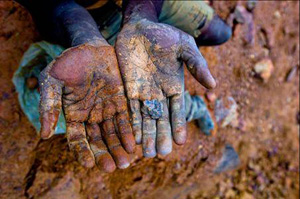|
Getting your Trinity Audio player ready...
|

If mining companies and many politicians have their way, the United States may try once again to seize land around the world explicitly in the name of resource extraction. At the center of this shift are energy transition minerals like lithium, nickel, and rare earth elements (which are not actually rare). Most demand for these minerals comes from electric vehicle batteries and other renewable energy technologies, as well as military applications. The Trump administration has so far expressed interest in minerals belonging to the countries of Panama, Ukraine, and Canada, as well as Kalaallit Nunaat (aka Greenland), an autonomous territory of Denmark.
These countries have been of great interest to the mining industry for years, interest that is increasing at a time of overwhelming pressure to increase transition mineral extraction.
- Panama is home to a massive copper mine, closed by the government in 2023 after weeks of protests by environmentalists, students, Indigenous groups, and labor activists. The mining company has appealed to Trump to pressure the country to restart mining.
- In 2022 the chair of Ukraine’s Association of Geologists claimed her country contained about 5% of the world’s mineral resources, but the true amount and worth of the country’s resources is unknown.
- Canada has extensive ETM deposits and has been a country well-known for mineral extraction, often opposed by many of its nearly two million First Nations residents.
- Kalaallit Nunaat’s Parliament voted in 2021 to ban uranium mining and “cease development of the Kuannersuit mine, one of the biggest rare earth deposits in the world.” This ban may be overturned after the next election.
- In addition to threatening territorial expansion, the Trump Administration is ramping up pressure to move forward with ETM mining in the United States, often on or near Indigenous Peoples’ lands, without proper regulatory oversight and Tribal consultation.
In the last administration, climate action ostensibly pushed much of the urgency behind more ETM mining, because replacing internal combustion vehicles with EVs requires vastly more ETMs. The Biden administration also financed mining for military purposes under the Defense Production Act This administration has continued the same drive to increase mining primarily as a source for military applications rather than a source for civilian use, such as EVs.
But the path to peace, security, and climate action must not rely upon mineral extraction and processing. Mined minerals and processing create massive social and environmental impacts: worldwide, mineral extraction and processing produces 17% of all greenhouse gas emissions and destroys some of the world’s most valuable remaining carbon sinks; mining is responsible for human rights abuses and displacing and harming Indigenous Peoples all over the world. From 2021 to 2023 “there were 334 incidents of violence or protest linked to mining copper, cobalt, lithium[,] and nickel in the top 10 producing countries.”
Ultimately, the United States must reduce overall demand for minerals, especially for military use. If mining and mineral processing continue to increase, communities, especially Indigenous communities, and the environment will pay the price. Those of us advocating for a just transition must deepen our commitment to protecting the right of self-determination for all peoples impacted by minerals mined and processed for military and other uses.
